Filmmaker Russ Meyer is known for writing and directing a series of sexploitation films throughout the late 60s and into 1970s that utilized campy humour to satirize the status quo and pop culture of the time, which he did fairly well, but when one thinks of Russ Meyer it’s hard to correlate the fact that one of his most outlandish entries was also co-written by none other than Roger Ebert, yes, that Robert Ebert, this future Pulitzer prize-winning film critic co-wrote a film that literally brimmed with gratuitous nudity, sadistic violence and outrageous acts of pure hedonism, a movie that Ebert's future co-host Gene Siskel would give a rating of zero out of four stars. How is that for a recommendation?
In 1967 Twentieth Century Fox released a lavish adaptation of Jacqueline Susann’s novel Valley of the Dolls and despite it being a very poorly reviewed movie it was a box office, surprise surprise, so with that success the idea of a sequel was brought to the powers that be, yet Russ Meyer’s Beyond the Valley of the Dolls is not that sequel, though it was originally intended to be a straightforward sequel, and author Jacqueline Susann had even come up with the title and a script by Jean Holloway was commissioned, but that was soon abandoned as the studio quickly turned to Russ Meyer, whose recent movie Vixen! had been a massive commercial success, and with Roger Ebert on board to work on the script history was made.
“Wait, who needs a plot when we have sex and pot?”
In what Roger Ebert claims is “The first rock horror exploitation musical” Beyond the Valley of the Dolls tells the story of a rock band consisting of three young women, Kelly MacNamara (Dolly Read), Casey Anderson (Cynthia Myers), and Petronella "Pet" Danforth (Marcia McBroom) who along with their manager Harris Allsworth (David Gurian) leave their smalltown lives and venture into the dangerous wilds of Los Angeles to become rich and famous, or at least that was the plan. The girls get the standard “Rich and Famous” contract from the insanely flamboyant rock producer Ronnie "Z-Man" Barzell (John LaZar) and before you can say “This is my happening and it freaks me out!” the girls find themselves in all sorts of trouble. As this is a Russ Meyer film the story mainly exists to support his completely unbiased love of large bosoms and this film does not shy away from revealing that certain portion of the female anatomy in all its glory.
Be warned, this film does not play with subtleties.
As in the Jacqueline Susann novel, this movie is all about sex, drugs and rock and roll but where the original Valley of the Dolls didn’t really have much in the way of rock and roll it did take a hard view of the music scene, and with this taking place in the late 60s there was a lot to lampoon when it comes to the excess and indulgences of the music industry in this “totally not a sequel” – please don't sue us but we know you obviously will – as we have Kelly being seduced by Lance Rocke (Michael Blodgett), a high-priced gigolo with eyes on Kelly’s possible inheritance, money that she may be getting from her rich aunt Susan Lake (Phyliss Davis) the heiress to a family fortune, while also fending off accusations of the same by her aunt’s lecherous lawyer Porter Hall (Duncan McLeod) who, and for some most likely insane reason, seduces into her bed.
Strangely, he doesn’t seem all that into a hot woman fondling his junk.
Meanwhile, Casey’s life is spiralling out of control as he gets hooked on pills and alcohol which results in her getting pregnant while stoned out of her mind – this occurs when a dejected Harris, who after being called a faggot by a porn star crashes at her place for some solace but takes advantage of her instead – she later has a warm and loving affair with lesbian fashion designer Roxanne (Erica Gavin) but that also ends badly, and I mean really badly. Even sweet Pet has a bit of a rough go of it because even though she falls in love with law student Emerson Thorne (Harrison Page), who is one of the rare nice and decent guys in this movie but she cheats on him with Randy Black (James Iglehart), a violent prize fighter and this film’s Muhammad Ali analog, who beats up Emerson and tries to run him down with a car. Throughout the movie relationships change and clash, even Aunt Susan gets a love interest in a rekindled romance with an old flame (Charles Napier), with the film's volatile moments switching on a dime to colourful "love in" moments in a manner only possible through the lens of Russ Meyer.
A typical day hanging out in Hollywood.
It's true that this movie doesn't have much in the way of Hallmark moments but with Russ Meyer’s quick cutting, Dutch angles and some quite solid cinematography it’s one of the best-looking “skin flicks” out there and I challenge anyone to find a more interesting, if not satirical looking vision of this point in history. It’s clear that Meyer was parodying the Hollywood scene of the 60s but one doesn’t have to squint too hard to believe that these weird characters aren’t too far off the mark when it comes to depicting the attitudes that surrounded this particular time and place even if it's through a somewhat hyperbolic lens. Were there really Hollywood orgies where the participants dressed up in superhero costumes? Sure, maybe, who knows, but I’d bet this is closer to the truth than we could ever possibly imagine.
“Holy girl-on-girl action, Batman!”
Stray Observations:
• Unlike the original film, there is no “virginal” character to be corrupted by showbusiness as our three leads start out being all about free love and drugs. Now, one can say they go further down the rabbit hole once in California but they were never naïve innocents.
• This film came out the same year that the cartoon Josie and the Pussycats debuted and they both deal with a female rock band and a hunky road manager, and now having seen a redheaded Dolly Read tolling around in a "Mystery Machine" I wish we'd got see her play Daphne in a Scooby-Doo movie.
• The flamboyant party thrown by rock producer Ronnie "Z-Man" Barzell is edited together like a montage sequence from the variety show Laugh-In, with quick cutting to guests popping off wacky one-liners.
• David Gurian looks so much like Paul Rudd that I have to wonder if they are actually the same person and that he just changed his name to hide that he is, in fact, immortal.
• The film’s last act revolves around a “Big Reveal” surrounding Z-Man sexual identity and his cries of “I am Superwoman!” puts this movie so far over the politically incorrect line that you can’t see it with a telescope.
Someone clearly hadn’t set up a safe word before playtime started.
Russ Meyer’s Beyond the Valley of the Dolls is a brilliant parody of the 60s drug and sex culture with the wise choice of everyone in the cast playing it “straight” and not winking at the camera, the script is full of high melodrama that constantly swings to absurd levels – from Pet and Emerson running through a field in slow motion as if they were in a feminine hygiene commercial to the climax of the film turning into a horrible gruesome homage to the Manson Family murders – and the cast of relative unknowns was left uncertain as whether their dialogue was intended to be comic or not, which made everything that much funnier. While this film is ostensibly a parody it does have its incredibly dark moments to balance out the extremely goofy and bizarre elements but even these darker elements are heightened and off-balanced.
Picture the Adam West Batman series only with a lot of sex and violence.
This is certainly not a film for everyone, it’s just too far out and weird to please the average moviegoer, but say what you will about Russ Meyer's sensibilities because while his films may seem to be the blatant sexual exploitation of women that is actually far from the case as in almost all his films it's the ladies who are being depicted as the strong and aggressive type while the men are more often than not the passive ones or even emasculated, a dynamic not shared by many filmmakers during this time period. If you have seen Beyond the Valley of the Dolls in the past but didn't like it I suggest you give it another try as each subsequent viewing will most likely unpack a little more of Meyer and Ebert’s unbridled madness and draw you into this world of sin and debauchery, and what do you have to lose but your sanity?
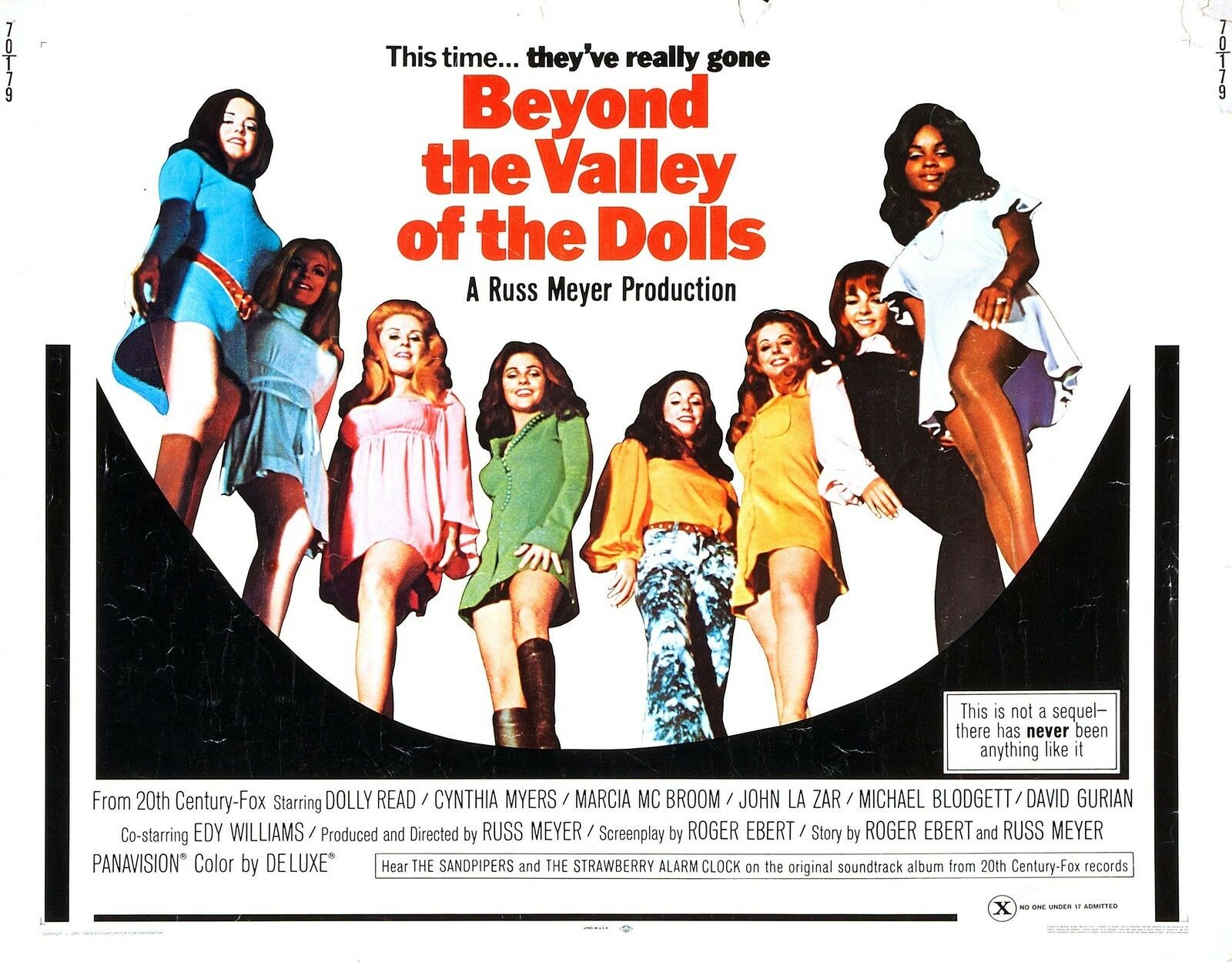
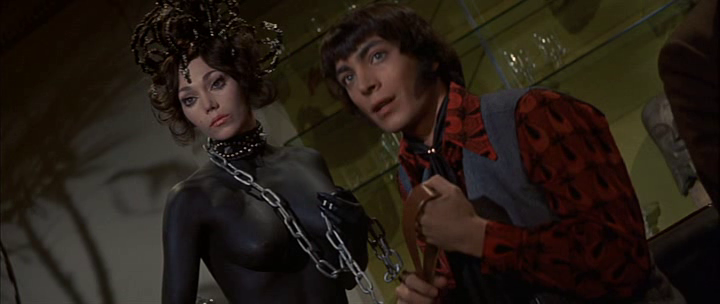
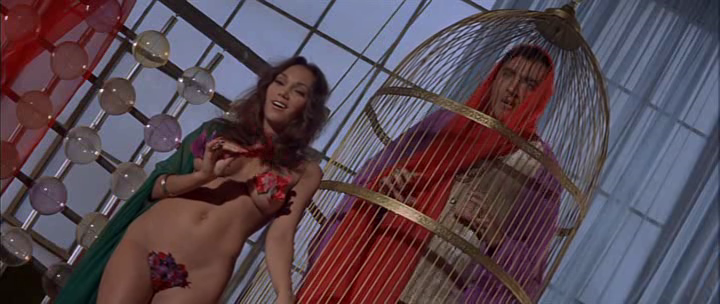
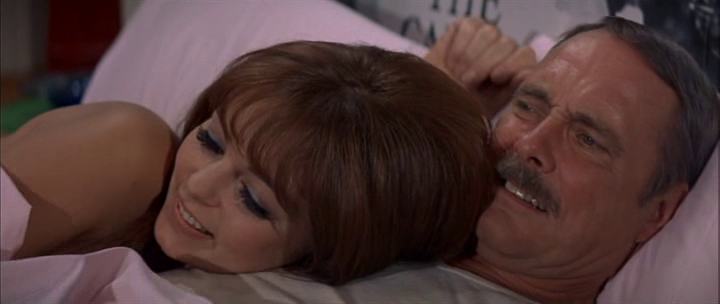
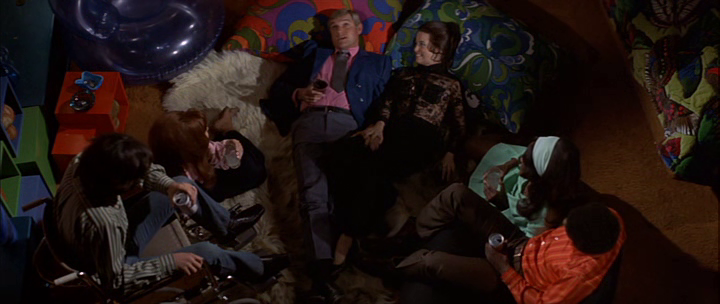
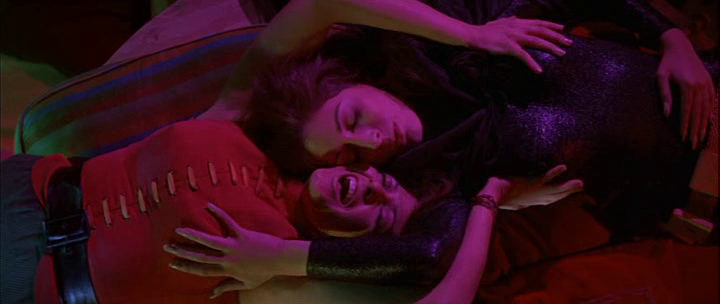
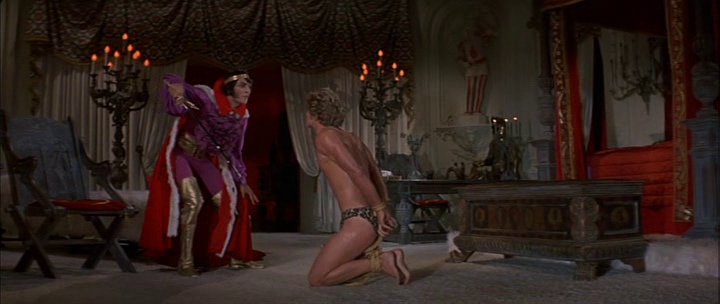
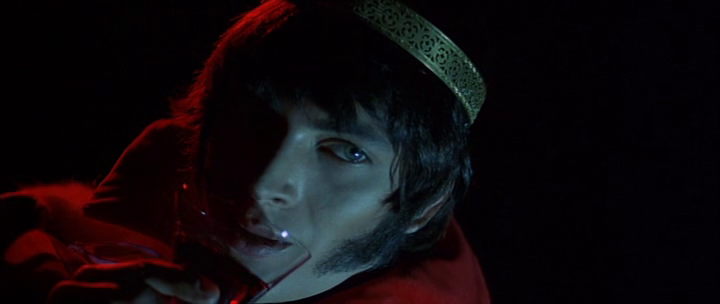

No comments:
Post a Comment